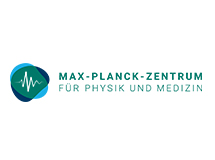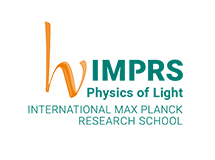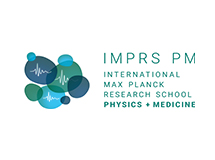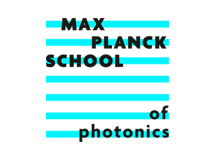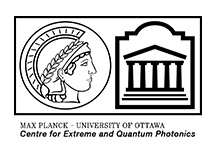Welcome to the Artificial Scientist Lab
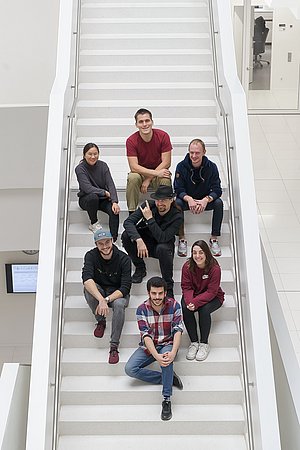
Our new independent theory research group, led by Mario Krenn (founded in September 2021), investigates how new artificial intelligence (AI) can make conceptual advances in physics, particularly quantum physics and quantum optics.
We are excited about the potential of artificial intelligence-inspired and -augmented science, and how we can use algorithms in a more “creative” way. We are convinced that the application of AI in science is not a mere technical question but touches the foundations of science. Thus, in order to make progress, it will be important to learn what humans mean by crucial scientific concepts such as surprising, creativity or understanding.
Concretely, we are developing AI-based tools for the design of new quantum experiments and hardware. Beyond the immediate interest in the designs themselves, the main goal is to understand the underlying concepts and ideas discovered by the machine to solve specific questions. We also build autonomously semantic network from scientific publications, and use machine learning to predict and suggest personalized future research questions and ideas. In that sense, we use the machine as a source of inspiration to accelerate scientific progress. Our research has recently been summarized in Scientific American.
Group News
- 2024.07.02: Lode Vermeulen successfully defended his Bachelor thesis, his thesis dealt with the formal verification of mathematics behind quantum optics experiments, using the theorem prover Lean.
- 2024.06.24: New paper preprint: The group of Ebrahim Karimi collected 9 months worth of weather data for a QKD link in Ottawa, and uses machine learning to forcast the weather quality and its consequence for the quantum communication link quality. Spearheaded by our joint student Tareq Jaouni.
- 2024.06.05: New paper preprint: Meta-Designing Quantum Experiments with Language Models. Instead of using AI to design a specific experimental setup, we use AI (specifically, a sequence-to-sequence transformer) to generate a Python code which designs a whole class of quantum experiments. The code direcly shows the underlying design principles and ideas.
- 2024.05.28: New paper preprint: Generation and human-expert evaluation of interesting research ideas using knowledge graphs and large language models. Here we generated ideas using knowledge graphs from 50+ million scientific papers and GPT4, and then evaluate them with more than 100 research group leaders within the Max Planck Society.
- 2024.04.15: Welcome to Jonathan Klimesch from the TU Munich, who joins for an external Master thesis.
- 2024.04.08: Welcome to Lode Vermeulen from the University of Amsterdam, who joins for an external Bachelor thesis.
- 2024.03.22: Philipp Schmidt successfully defended his master thesis on VR for AI-driven Scientific Discovery.
- 2024.03.18: Paper published in Physical Review Research: Quantum interference between distant creation processes
- 2024.03.05: New paper preprint: Virtual Reality for Understanding Artificial-Intelligence-driven Scientific Discovery with an Application in Quantum Optics.
- 2024.02.14: New paper preprint: Forecasting high-impact research topics via machine learning on evolving knowledge graphs.
- 2023.12.15: New paper preprint: Digital Discovery of interferometric Gravitational Wave Detectors.
- 2023.12.14: Two papers published in journals: In Quantum we have PyTheus and its discovery of 100 new quantum experiments. In Optica Quantum one concrete extension of the idea on a quantum communication problem.
- 2023.10.20: Paper published in Nature Machine Intelligence on the forecast of the future of AI research by AI.
- 2023.10.13: New paper preprint: XLuminA: An Auto-differentiating Discovery Framework for Super-Resolution Microscopy.
- 2023.09.13: New paper preprint: Deep Quantum Graph Dreaming: Deciphering Neural Network Insights into Quantum Experiments.
- 2023.07.24: New paper preprint: Experimental Solutions to the High-Dimensional Mean King's Problem.
- 2023.07.01: Paper published in Digital Discovery on the detailed code for the latest version of SELFIES, a 100% robust molecular string representation.
- 2023.05.25: Juilee Kulkarni's master thesis on Prediction of future research trends in Optics using Semantic Analysis and Artificial Neural Networks.
- 2023.05.20: Jan Petermann's bachelor thesis on Digital Discovery of Experimental Setups for Creating Highly-Entangled Quantum States.
- 2023.04.10: New paper preprint: Quantum interference between distant creation processes.
- 2023.03.17: Paper published in Nature Communications about a new multi-photon interference, derived from a graph-theoretical representation (discovered using AI).
- 2023.02.08: New paper preprint on code-details of SELFIES library for AI in chemistry.
- 2023.01.13: Paper published in Optica about the experimental observation of a new multi-photon effect that was predicted for the first time using our Graph Theory techniques.
- 2023.01.03: Welcome to our new Master student Philipp S. Schmidt!
- 2023.01.03: Paper (invited perspective) published in Phys. Rev. A. on Artificial intelligence and machine learning for quantum technologies.
- 2022.10.19: First two papers preprints from the group, and they are HUGE: Release of PyTheus, a highly-efficient open-source discovery framework for quantum optics. We showcase PyTheus to discover 100 (!!) diverse new quantum experiments (state generation, quantum communication, quantum measurements, quantum gates, quantum simulation), and use it to extract a new very surprising scientific concept in experimental quantum optics.
- 2022.10.11: Paper published in Nature Review Physics On Scientific Understanding with Artificial Intelligence. A wild view into the future of how AI could contribute to the essentail aims of science.
- 2022.10.04: New paper preprint on Predicting the Future of AI with AI.
- 2022.08.09: New paper preprint, a perspective/review article on AI in quantum technology and quantum hardware.
- 2022.08.01: Welcome to Dr. Xuemei Gu, who joins us as a Post-Doc researcher.
- 2022.07.26: Welcome to Carla Rodriguez, who is visiting us from Barcelona for 7 months.
- 2022.07.26: Paper published in Machine Learning: Science and Technologies on curious agents that explore the universe of molecules.
- 2022.06.21: Paper published in Reviews of Modern Physics on Quantum indistinguishability by path identity and with undetected photons.
- 2022.06.16: Paper published in Nature Machine Intelligence on interpretable internal representations of large neural networks for quantum optics.
- 2022.06.01: Welcome to Tareq Jaouni, who is visiting us from Ottawa for 3 months.
- 2022.04.22: Welcome to our new Bachelor student Jan Petermann!
- 2022.04.05: New paper preprint on Scientific Understanding with Artificial Intelligence. Perspective towards an essential aim of science - IMO crucial for the creation of a true Artificial Scientist.
- 2022.04.04: New paper preprint on SELFIES and the future of molecular string representations for AI in chemistry and material science (collaborations with 31 coauthors from 10 different countries).
- 2022.02.24: Paper published in Phys.Rev.Applied on the first experimental qutrit-GHZ state in a superconducting device.
- 2021.12.23: New paper preprint on the experimental observation of a new quantum interference effect, and its nonlocal control with undetected photons. The interference effect was discovered by our AI algorithms a few years ago.
- 2021.11.15: Welcome to our new Master student Juilee Kulkarni!
- 2021.09.29: New paper preprint on the usage of logic and SAT solvers in the design of quantum experiments.
- 2021.09.07: New paper preprint on the internal worldview of deep generative models in quantum experiments.
- 2021.09.01: The Artificial Scientist Lab at the Max Planck Institute for the Science of Light (Theory Division) sees its first light. Founding members: Sören Arlt, Carlos Ruiz González and Mario Krenn.
Contact
Marquardt Division
Krenn Junior Research Group
MPI for the Science of Light
Staudtstr. 2
D-91058 Erlangen, Germany

